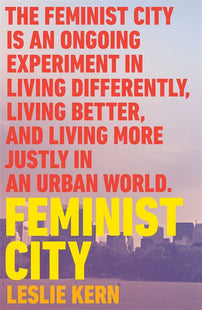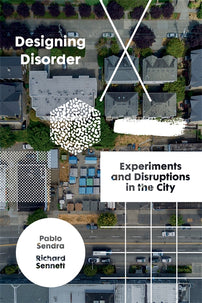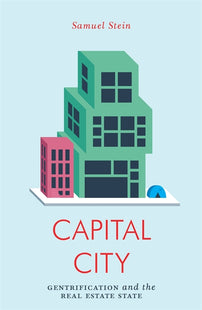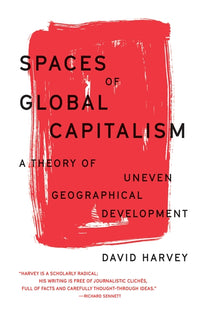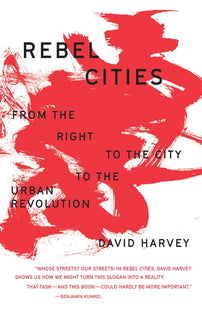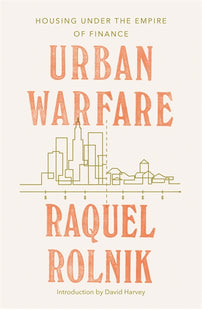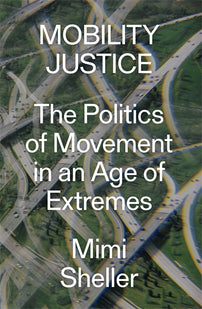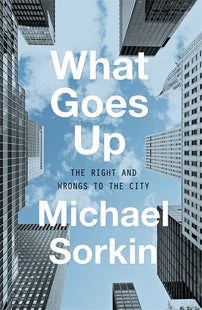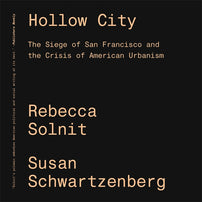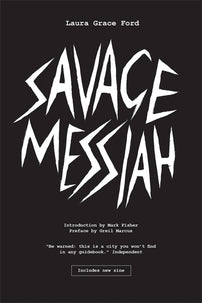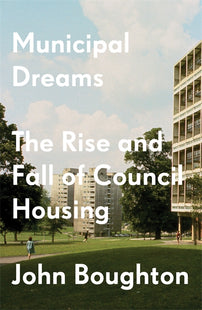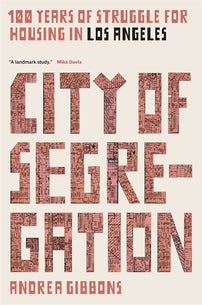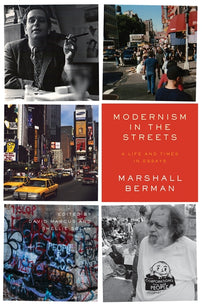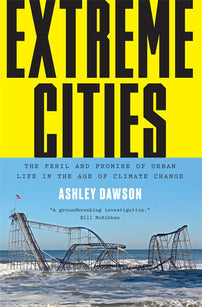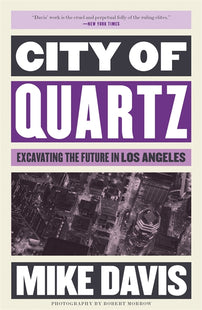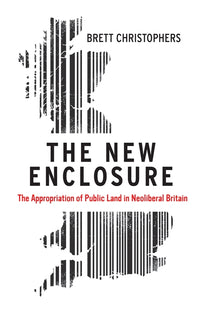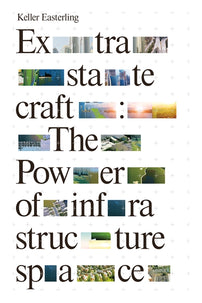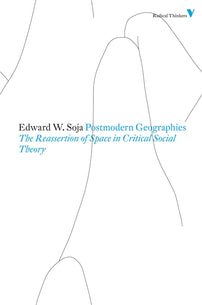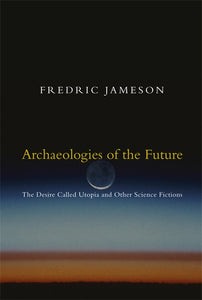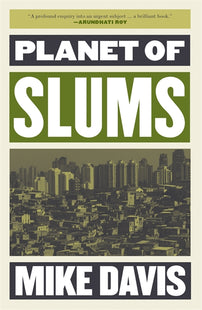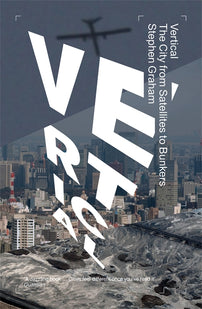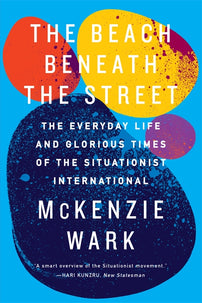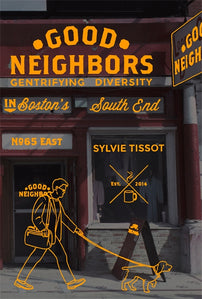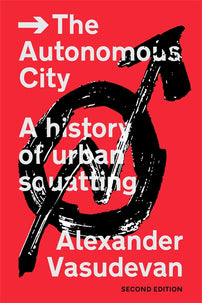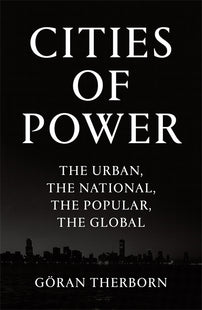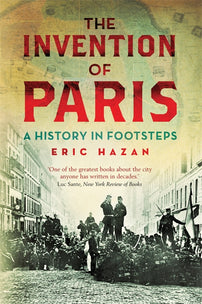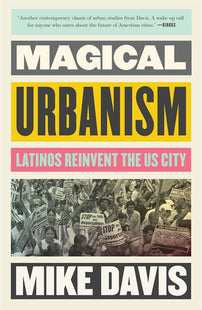Reclaim Our Cities
Who are our cities for? A reading list on the geography of inequality, the politics of cities and planning and the fights for more just and sustainable urban environments.

In the current moment, the condition of our cities is more felt than ever. Skyrocketing rents, overcrowding and uneven accessibility are intensified in times of crisis. This reading list of key titles on cities, planning and radical geography reimagines how we might build egalitarian and affordable cities that foster community and solidarity.
All our books are 40% off as part of our end of year sale. We also have bundled ebooks with every print purchase — meaning you can gift the print book (if you want to!) and start reading the ebook straight away! See more here.
We have lots more reading lists to help navigate our entire catalog of books here! And download our special FREE ebook collection The Right to the City here.
[book-strip index="1" style="buy"]In Feminist City, through history, personal experience and popular culture Leslie Kern exposes what is hidden in plain sight: the social inequalities built into our cities, homes, and neighborhoods. Kern offers an alternative vision of the feminist city. It is time to dismantle what we take for granted about cities and to ask how we can build more just, sustainable, and women-friendly cities together.
[book-strip index="2" style="buy"]In 1970, Richard Sennett published the groundbreaking The Uses of Disorder, arguing that the ideal of a planned and ordered city was flawed. Fifty years later, Sennett returns to these still fertile ideas and, alongside campaigner and architect Pablo Sendra, sets out an agenda for the design and ethics of the Open City.
The public spaces of our cities are under siege from planners, privatisation and increased surveillance. Our streets are becoming ever more lifeless and ordered. What is to be done? Can disorder be designed? In this provocative essay Sendra and Sennett propose a reorganisation of how we think and plan the social life of our cities. “Infrastructures of disorder” combine architecture, politics, urban planning and activism in order to develop places that nurture rather than stifle, bring together rather than divide up, remain open to change rather than closed off.
Our cities are changing. Around the world, more and more money is being invested in buildings and land. Real estate is now a $217 trillion dollar industry, worth thirty-six times the value of all the gold ever mined. It forms sixty percent of global assets, and one of the most powerful people in the world—the president of the United States—made his name as a landlord and developer. Capital City explains the role of planners in the real estate state, as well as the remarkable power of planning to reclaim urban life.
[book-strip index="4" style="buy"]David Harvey, the single most important geographer writing today and a leading social theorist of our age, offers a comprehensive critique of contemporary capitalism. In this fascinating book, he enlarges upon the key themes in his recent work: the development of neoliberalism, the spread of inequalities across the globe, and “space” as a key theoretical concept. This book will be essential reading for scholars and students across the humanities and social sciences.
[book-strip index="5" style="buy"]Rebel Cities places the city at the heart of both capital and class struggles, looking at locations ranging from Johannesburg to Mumbai, from New York City to São Paulo. Drawing on the Paris Commune as well as Occupy Wall Street and the London Riots, Harvey asks how cities might be reorganized in more socially just and ecologically sane ways—and how they become the focus for anti-capitalist resistance.
[book-strip index="6" style="buy"]The most comprehensive survey of the current crisis, Urban Warfare charts how the financial crisis and wider urban politics have left millions homeless and in financial desperation across the world.
[book-strip index="7" style="buy"]Mobility Justice is a new way to understand the deep flows of inequality and uneven accessibility in a world in which the mobility commons have been enclosed. It is a call for a new understanding of the politics of movement and a demand for justice for all.
[book-strip index="8" style="buy"]Michael Sorkin is one of the most forthright and engaging architectural writers in the world. In What Goes Up he takes to task the public officials, developers, “civic” organizations, and other heroes of big money, who have made of Sorkin’s beloved New York a city of glittering towers and increasing inequality. He unpacks not simply the forms and practices—from zoning and political deals to the finer points of architectural design—that shape cities today but also offers spirited advocacy for another kind of city, reimagined from the street up on a human scale, a home to sustainable, just, and fulfilling neighborhoods and public spaces.
[book-strip index="9" style="buy"]Hollow City surveys San Francisco’s transformation—skyrocketing residential and commercial rents that are driving out artists, activists, nonprofit organizations and the poor; the homogenization of the city’s architecture, industries and population; the decay of its public life; and the erasure of its sites of civic memory.
[book-strip index="10" style="buy"]Savage Messiah collects the entire set of Laura Grace Ford’s fanzine to date. Part graphic novel, part artwork, the book is both an angry polemic against the marginalisation of the city’s working class and an exploration of the cracks that open up in urban space.
[book-strip index="11" style="buy"]Urgent, timely and compelling, Municipal Dreams brilliantly brings the national story of housing to life. In this landmark reappraisal of council housing, historian John Boughton presents an alternative history of Britain. Rooted in the ambition to end slum living, and the ideals of those who would build a new society, Municipal Dreams looks at how the state’s duty to house its people decently became central to our politics. The book makes it clear why that legacy and its promise should be defended.
[book-strip index="12" style="buy"]City of Segregation documents one hundred years of struggle against the enforced separation of racial groups through property markets, constructions of community, and the growth of neoliberalism. Andrea Gibbons reveals the shape and nature of the racist ideology that must be fought, in Los Angeles and across the United States, if we hope to found just cities.
[book-strip index="13" style="buy"]Marshall Berman was one of the great urbanists and Marxist cultural critics of the twentieth and twenty-first centuries, and his brilliant, nearly sui generis book All That Is Solid Melts Into Air is a masterpiece of the literature on modernism.
[book-strip index="14" style="buy"]In Extreme Cities, Dawson offers an alarming portrait of the future of our cities, describing the efforts of Staten Island, New York, and Shishmareff, Alaska residents to relocate; Holland’s models for defending against the seas; and the development of New York City before and after Hurricane Sandy. Our best hope lies not with fortified sea walls, he argues. Rather, it lies with urban movements already fighting to remake our cities in a more just and equitable way.
[book-strip index="15" style="buy"]In City of Quartz, Mike Davis reconstructs L.A.’s shadow history and dissects its ethereal economy. He tells us who has the power and how they hold on to it. He gives us a city of Dickensian extremes, Pynchonesque conspiracies, and a desperation straight out of Nathaniel Westa city in which we may glimpse our own future mirrored with terrifying clarity.
[book-strip index="16" style="buy"]In Defense of Housing is the definitive statement on the housing crisis from leading urban planner Peter Marcuse and sociologist David Madden. They look at the causes and consequences of the housing problem and detail the need for progressive alternatives. The housing crisis cannot be solved by minor policy shifts, they argue. Rather, the housing crisis has deep political and economic roots—and therefore requires a radical response.
[book-strip index="17" style="buy"]Forest land, defence land, health service land and above all else local authority land—for farming and school sports, for recreation and housing—has been sold off en masse. Why? How? And with what social, economic and political consequences? The New Enclosure provides the first ever study of this profoundly significant phenomenon, situating it as a centrepiece of neoliberalism in Britain and as a successor programme to the original eighteenth-century enclosures.
[book-strip index="18" style="buy"]Extrastatecraft is the operating system of the modern world: the skyline of Dubai, the subterranean pipes and cables sustaining urban life, free-trade zones, the standardized dimensions of credit cards, and hyper-consumerist shopping malls. It is all this and more. Infrastructure sets the invisible rules that govern the spaces of our everyday lives, making the city the key site of power and resistance in the twenty-first century.
[book-strip index="19" style="buy"]Postmodern Geographies stands as the cardinal broadcast and defence of theory’s “spatial turn.” From the suppression of space in modern social science and the disciplinary aloofness of geography to the spatial returns of Foucault and Lefebvre and the construction of Marxist geographies alert to urbanization and global development, renowned geographer Edward W. Soja details the trajectory of this turn and lays out its key debates.
[book-strip index="20" style="buy"]In an age of globalization characterized by the dizzying technologies of the First World, and the social disintegration of the Third, is the concept of utopia still meaningful? Archaeologies of the Future, Jameson’s most substantial work since Postmodernism, Or, the Cultural Logic of Late Capitalism, investigates the development of this form since Thomas More, and interrogates the functions of utopian thinking in a post-Communist age.
[book-strip index="21" style="buy"]According to the United Nations, more than one billion people now live in the slums of the cities of the South. In this brilliant and ambitious book, Mike Davis explores the future of a radically unequal and explosively unstable urban world. From the sprawling barricadas of Lima to the garbage hills of Manila, urbanization has been disconnected from industrialization, and even from economic growth. Davis portrays a vast humanity warehoused in shantytowns and exiled from the formal world economy.
[book-strip index="22" style="buy"]Starting at the edge of earth’s atmosphere and, in a series of riveting studies, descending through each layer, Graham explores the world of drones, the city from the viewpoint of an aerial bomber, the design of sidewalks and the hidden depths of underground bunkers. He asks: why was Dubai built to be seen from Google Earth? How do the super-rich in São Paulo live in their penthouses far above the street? Why do London billionaires build vast subterranean basements? And how do the technology of elevators and subversive urban explorers shape life on the surface and subsurface of the earth?
[book-strip index="23" style="buy"]Accessible to those who have only just discovered the Situationists and filled with new insights, The Beach Beneath the Street rereads the group’s history in the light of our contemporary experience of communications, architecture, and everyday life. The Situationists tried to escape the world of twentieth-century spectacle and failed in the attempt. Wark argues that they may still help us to escape the twenty-first century, while we still can.
[book-strip index="24" style="buy"]Does gentrification destroy diversity? Or does it thrive on it?
This subtle study of a storied urban neighborhood reveals the way that upper-middle-class newcomers have positioned themselves as champions of diversity, and how their mobilization around this key concept has reordered class divisions rather than abolished them.
The Autonomous City is the first popular history of squatting as practised in Europe and North America. Alex Vasudevan retraces the struggle for housing in Amsterdam, Berlin, Copenhagen, Detroit, Hamburg, London, Madrid, Milan, New York, and Vancouver. He looks at the organisation of alternative forms of housing—from Copenhagen’s Freetown Christiana to the squats of the Lower East Side—as well as the official response, including the recent criminalisation of squatting, the brutal eviction of squatters and their widespread vilification.
[book-strip index="26" style="buy"]From the tunnels of Gaza to the militarized airspace of the Occupied Territories, Eyal Weizman unravels Israel’s mechanisms of control and its transformation of Palestinian homes into a war zone under constant surveillance. This is essential reading for those seeking to understand how architecture and infrastructure are used as lethal weapons in the formation of Israel.
[book-strip index="27" style="buy"]All Over the Map is an urgent response to the radical changes in contemporary architecture and the built environment witnessed in the twenty-first century. Characteristically polemic, incisive and energetic, these essays explore pressing questions of architectural and urban design, and critical issues of public space and participation.
[book-strip index="28" style="buy"]With its unique systematic overview, from Washington, D.C. and revolutionary Paris to the flamboyant twenty- first-century capital Astana in Kazakhstan, its wealth of urban observations from all the populated continents, and its sharp and multi-faceted analyses, Cities of Power forces us to rethink our urban future, as well as our historically shaped present.
[book-strip index="29" style="buy"]The Invention of Paris is a tour through the streets and history of the French capital under the guidance of radical Parisian author and publisher Eric Hazan.
[book-strip index="30" style="buy"]Is the capital of Latin America a small island at the mouth of the Hudson River? Will California soon hold the balance of power in Mexican national politics? Will Latinos reinvigorate the US labor movement? These are some of the provocative questions that Mike Davis explores in this fascinating account of the Latinization of the US urban landscape. As he forefully shows, this is a demographic and cultural revolution with extraordinary implications.
